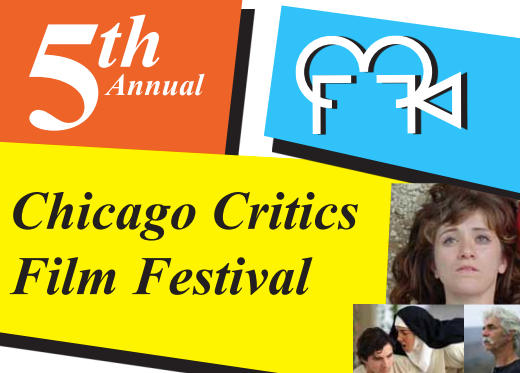DOCUMENTARY REVIEW: Score: A Film Music Documentary
5th Chicago Critics Film Festival selection
SCORE: A FILM MUSIC DOCUMENTARY-- 4 STARS
This writer is an unabashed film music lover. I owned more film score CDs than ones of popular music back in the day and that ratio hasn’t changed with digital media. Hell, I wrote a long-form editorial three years ago proclaiming film music as an improvement of the Mozart Effect for babies and children which led to an “Ultimate Playlist of Movie Music Lullabies” afterwards that I still use to this day. I am a mark for what Score: A Film Music Documentary was selling and many of the names and talents featured in the film are found on that personal playlist.
Score: A Film Music Documentary, written and directed by debuting filmmaker Matt Schrader, dives into the work ethic and creative springs of film composer past and present. The documentary goes behind-the-scenes and into the recording studios to watch the mad scientists in action. Featuring over 60 interview subjects in just over 90 minutes, Score is as comprehensive as it is fascinating.
Beginning with 3:10 to Yuma composer Marco Beltrami hanging piano wire to vibrate in the breeze across a Malibu valley for an effect to use in his latest project and ending with Marvel Film specialist Brian Tyler going into public theaters to see audience reactions, the colorful eccentricities of these artists come to light. All have their influences and styles and, with each film, it becomes meshing their creations with the artistic visions of the filmmakers. Score sheds light on each step of that back-and-forth process, spanning initial writing, spotting sessions, blank slates, personal anxieties, deadline nightmares, experimental attempts, digital editing, the complexity of the business end that has invaded the art form, and more.
Composers like Beltrami, Tyler, the great Hans Zimmer, John Debney (The Passion of the Christ), Heitor Pereira (the Despicable Me and Smurfs franchises), James Bond veteran David Arnold, and dozens more share their plights and musings of what constructs their passions. Their testimonies combine with those of influential contributors like film critic Leonard Maltin, filmmaker James Cameron, and film music historian John Burlingame on how movie music creates the emotional responses that can make or break a film for audiences.
Starting as Wurlitzer-fueled background noise to mask the loud mechanical sounds of old film projector, the documentary stretches into the prerequisite chronicle of the history of original musical composition for film. Max Steiner’s King Kong benchmark leads to the groundbreaking shifts of Charlie Chaplin muse Alfred Newman and jazz invader Alex North (A Streetcar Named Desire), the improvised instrumentations of Bernard Herrmann and Jerry Goldsmith, and forward to the return of the golden era classical scope ruled by the legendary John Williams. The remembered history and the archival callbacks to all their motifs are worth the price of admission alone.
Score’s efficient timeline of greats culminates with the resident genius of Hans Zimmer and the present day flavorings of the extroverted synthesizers he and the likes of Danny Elfman and former Nine Inch Nails rockers-turned-Oscar-winners Trent Reznor and Atticus Ross employ. The historical track of Score may be plainly rooted in typical documentary structure, but the content plays out in engaging and educational fashions. An brief epilogue remembering the late James Horner is the cherry on top of this able documentary that needs to top the short-list of movie lover and movie music lovers alike. You will find much to love.
LESSON #1: THE WORK OF FILM COMPOSERS-- Like a good documentary should, Score offers an all-inclusive expedition into what it takes to bring orchestrational music from concept to completed piece. These men and women are not just standing in front to professional musicians waving their batons. The process is tremendous and exhausting.
LESSON #2: MUSIC AS A STORYTELLING COMPONENT-- The intricacies of Lesson #1’s work and process is all about storytelling. Music can support action or dialogue in some movie scenes or entirely replace it in others. Film score are an essential storytelling component and more than just distractive noise.
LESSON #3: MUSIC CREATES EMOTIONAL RESPONSES-- I don’t know about you, but I cannot think of my favorite films without hearing their musical cues along with those visual memories. Multifaceted music with structure and orchestral emotion cause explosions in our brains firing up processing in several systems and locations where physiological responses follow. Goosebumps are the best, right there with tears and cheers.
LOGO DESIGNED BY MEENTS ILLUSTRATED (#575)




